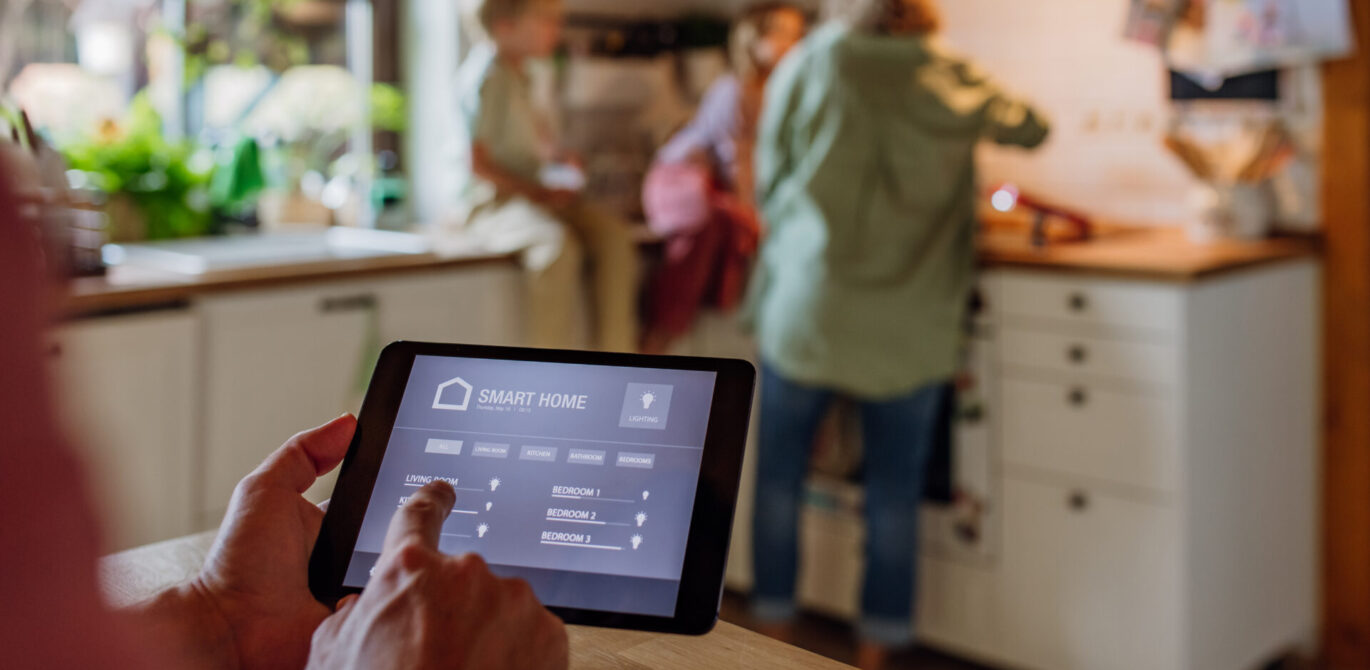As we begin to head into the summer months, homebuyers and homeowners alike are paying closer attention to how well properties handle the heat and how much energy they use to stay comfortable..
Beyond solar panels and insulation, a new wave of smart home technology is making it easier (and more affordable) to keep homes cool, efficient, and market-ready.
If you’re preparing a property for sale, managing an investment, or simply improving your family home, these summer-smart tech upgrades can add appeal, comfort, and long-term value without the cost of a major renovation.
Here’s how three standout solutions, can make a real difference in both liveability and market desirability.
Smart Ceiling-Fan Systems: Modern Comfort, Minimal Cost
A simple way to lift the feel (and efficiency) of any home is with smart ceiling fans. These combine energy-saving DC motors with smart technology for app, voice, or sensor control which is perfect for family living or tenants who value convenience.
Indicative costs:
- Smart ceiling fan: $250–$800
- Retrofit smart module or wall switch: $60–$250
- Professional installation: $100–$250 per fan
Smart fans offer a modern, lifestyle-focused feature that reduces energy use while maintaining comfort. By using fans strategically, occupants can raise air-conditioning set points by around two degrees and save up to 10–15% on cooling costs, a big selling point for energy-conscious buyers.
Added appeal:
- Seamless, contemporary design options to suit most interiors
- Integration with smart home hubs (Google, Apple)
- Ideal for open-plan living and bedrooms where comfort and quiet matter
For sellers and investors:
Smart ceiling fans show buyers the home has been thoughtfully upgraded with modern living in mind, a low-cost improvement that can subtly lift perceived value.
Zoned Ducted Air-Conditioning: Smarter Cooling Control
For homes already equipped with ducted air-conditioning, adding smart zoning transforms how efficiently the system runs.
Zoning divides the home into separate areas so you can cool only the spaces in use which is perfect for families, work-from-home setups, or multi-storey properties.
Indicative costs:
- Retrofit zoning upgrade: $2,000–$3,500
- Full ducted system with smart zoning: $6,000–$15,000+ (depending on home size and brand)
Energy and comfort benefits:
Zoning can reduce unnecessary cooling by up to 30%, depending on household routines. Smart controllers allow per-room scheduling, occupancy detection, and app-based control so residents can arrive home to a perfectly cooled space without running the system all day.
Why it matters for property value:
Ducted air-conditioning already rates highly on buyers’ wish lists. Adding smart zoning not only enhances comfort but also demonstrates energy efficiency and future-readiness which are strong selling features in a market where sustainability and liveability drive decisions.
Top features to highlight in listings:
- Zoned temperature control (ideal for larger families)
- Smartphone and voice operation
- Real-time energy monitoring
- Reduced operating costs and extended system life
AI-Driven Smart Watering Systems: Greener Gardens, Smaller Bills
Curb appeal matters, but so does water efficiency. Smart irrigation systems use local weather data, forecasts, and soil moisture sensors to automatically adjust watering schedules, reducing waste while keeping gardens lush.
Indicative costs:
- Smart irrigation controller: $200–$400
- Controller with sensors or flow meter: $350–$800
- Installation (optional): $100–$400
Savings and sustainability:
AI-based irrigation can cut outdoor water use by 20–40%, depending on conditions and existing watering habits. For a typical suburban home, that’s a saving of around $90–$150 per year, plus a healthier garden through more precise watering.
Why buyers notice:
Outdoor spaces that look great with minimal upkeep resonate with modern families. Highlighting “smart irrigation” or “AI-controlled watering” in property listings adds a premium touch, positioning the home as low-maintenance, eco-conscious, and tech-forward.
Bringing It All Together: Smart, Cool, and Connected Living
These three technologies work best when layered:
- Smart fans improve comfort and reduce the need for constant air-conditioning.
- Zoned air-conditioning targets cooling efficiently where it’s needed.
- Smart watering systems keep outdoor areas thriving without wasting water.
Together, they create a climate-responsive home. One that intelligently adapts to weather, use and lifestyle.
Why Sellers Should Care
Smart automation has moved from novelty to expectation. More buyers are looking for homes that combine sustainability with convenience and these upgrades tick both boxes.
Each adds a subtle but meaningful boost to perceived quality, showing the home is not just modern, but future-ready.
Weighing it All Up
Summer-smart tech is no longer reserved for luxury builds, it’s fast becoming a mainstream feature of liveable, efficient homes.
For sellers, it’s an easy way to elevate a property’s value and desirability. For buyers, it’s reassurance that their next home is both comfortable and cost-savvy in a warming climate.
Whether you start with a single fan or go all-in with zoned climate control, investing in smart, sustainable upgrades is one of the most practical ways to future-proof your home and make it stand out in the market.
Want to know how to future proof your home and prepare it for sale? Contact an Elders Expert here.
